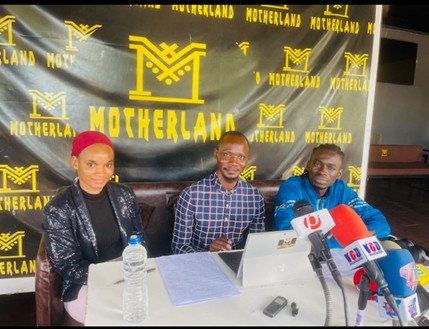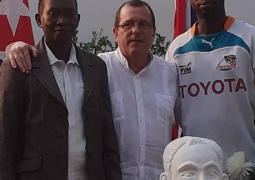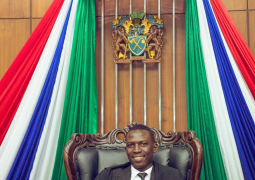
Citing UNESCO figures, he noted that The Gambia’s literacy rate stands at 60 percent, with a significant gender disparity; 75 percent for males compared to 50 percent for females. Limited access to libraries, poverty, and weak reading culture, he said, continue to undermine learning performance across many communities.
The foundation’s Administrative Secretary, Jamilatou Jallow, disclosed that 32 schools across tertiary, secondary, and vocational levels have been invited to take part in the maiden competition. Each institution will nominate one participant to read a Gambian or African book for ten minutes on stage. From this round, five finalists will be chosen for further training in preparation for the national final.
She added that invitations have been extended to key stakeholders, including the Ministers for Basic and Secondary Education and Youth and Sports, the U.S. Embassy, private sector organisations, and members of the diplomatic corps. The national event is scheduled for 1st December 2025.
Responding to questions from journalists, Sowe explained that the inaugural edition focuses on urban schools due to financial limitations, but subsequent editions will be hosted in different regions. He further revealed that the foundation plans to introduce regional qualifiers and broaden participation to madrassas, private schools, and institutions serving persons with disabilities. Measures such as interpreters and medical support are being considered to ensure inclusivity.
Jallow noted that one of the hurdles organizers face has been reluctance from some schools, many of which have struggled to identify suitable candidates despite the straightforward requirements. She said the initiative seeks to reverse declining reading trends and encourage schools to prioritise literacy development beyond exam-focused learning
A panel of seasoned educators, recommended by the Ministry of Basic and Secondary Education including senior lecturers with more than three decades of teaching experience will evaluate the Read-A-Thon. Judges will assess fluency, pronunciation, comprehension, and overall reading ability.
Organizers stressed that the long-term ambition is to build a strong national reading culture that could position The Gambia to compete for the Guinness World Record for the longest reading marathon, a title currently held by Nigeria.



